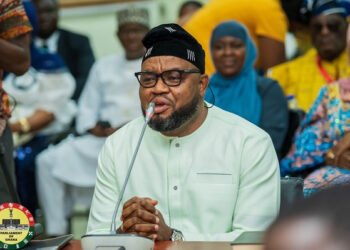The African Energy Chamber (AEC) the voice of the African energy sector has hosted a webinar exploring gender inclusivity and equality across Africa’s energy industry and the best practices to maximize female participation in helping Africa deliver a just and equitable energy transition.
Under the AEC’s African Women Business Energy Network (AWBEN) initiative, the webinar took place under the theme, ‘Harnessing Diversity and Inclusion in the energy industry in the age of Energy Transition’, and was moderated by NJ Ayuk, the Executive Chairman of the AEC with Katia Epalanga, Executive Director, Sonangol; Oluseyi Afolabi, Principal Consultant and CEO, Reservoir and Facilities Solutions Nigeria; Mojisola Iyamabo, Associate Vice President, Heirs Holdings Oil and Gas; Grace Orife, CEO Adelaar Energy and Advisory Board Member of the AEC; Monique Ntumngia, Founder and Executive Director, The Green Girls Organisation; and Rokhaya Daba Fall, Chairperson, REGEP Energy, Senegal, as speakers.
Commenting on the level of inclusivity within Africa’s energy sector, Epalanga stated that, “Africa needs to improve, with only 6% of oil and gas workers being female. We will stop when we have at least a 50% representation across the entire value chain. We need to educate women more with STEM and leadership skills. The energy transition is coming with challenges hence we need to be faster to implement new strategies. Angola has strived with 30% of the workforce being females, however, we need more policy and education initiatives that can help improve that.”
Afolabi, added that, “There is immense opportunities for entrepreneur participation across the entire energy industry. Women can exploit these opportunities as contractors or as entrepreneurs. There are vast opportunities as well when female energy leaders embark in joint ventures with international firms and investors. However, they need to demonstrate their ability to implement projects because no one wants to risk their investment. In Africa, one major thing that we have to address is tradition, customs and stereotypes towards women. We can write many words and policies on a piece of paper, but they mean nothing when there is no follow up and practical implementation.”
With Senegal set to achieve its first oil and gas production in 2023, Fall highlighted some of the ways the country is prioritizing women participation not only in the energy sector but across the entire economic spectrum. She stated that, “We have learnt from what has happened in other African countries and we are using the lessons to implement best practices to enhance our oil and gas industry while ensuring females are incorporated in economic growth and that we do not neglect other sectors such as food security. We will develop other sectors and empower women based on what we have as outcome from our oil and gas. There is a newly created platform, which I am leading, designed to connect women from across our entire energy industry. We also hope to see the private sector prioritizing female inclusion across various stages of their businesses.”
The webinar also saw Ntumngia highlighting the role of integrating government policies with digital technologies to ensure challenges such as lack of access to reliable and affordable energy and clean cooking solutions are addressed.
She stated that, “Africa is struggling with employing more women in the industry because we don’t have policies in place, there are a lot of bottlenecks in terms of law implementation and the industry is hostile and male dominated. One of the biggest challenges we have in Africa is that we don’t have data regarding the challenges which women in various communities are facing. We are going into communities to gather data and leverage it to optimize communities’ biogas and solar capabilities to boost access to energy and clean cooking. African women are the most affected hence we need to make use of artificial intelligence to maximize renewable energy, oil and gas to meet their challenges.”
Speaking on how African countries can secure funding to optimize female inclusion in the energy industry, Iyamabo, said that “For African energy projects to be able to get funding, gender neutrality is the new standard. Women need to be creative and innovative on how to structure and present projects to attract funding. They should clearly define their initiatives and how they plan to return funding they want investors to provide. Government regulations also should support financing of female led initiatives. In Nigeria, the Petroleum Industry Act has provided clarity on the government’s stance on oil and gas hence investors are flowing in and it is much easier for female projects to secure funding. Women should also prioritize using what they have in terms of local capital to grow the and in the industry.”
Orife closed the webinar by highlighting how the AEC, through AWBEN, is partnering with governments, industry stakeholders and the private sector to drive female participation in Africa’s energy industry. She stated that, “We have so many females wanting to be part of Africa’s energy journey. We launched the community on women’s day to connect women in energy to have discussions around challenges and opportunities within the sector. The network is that platform women can leverage to be part of the transition and agenda to end energy poverty across the continent by 2030.”






























































